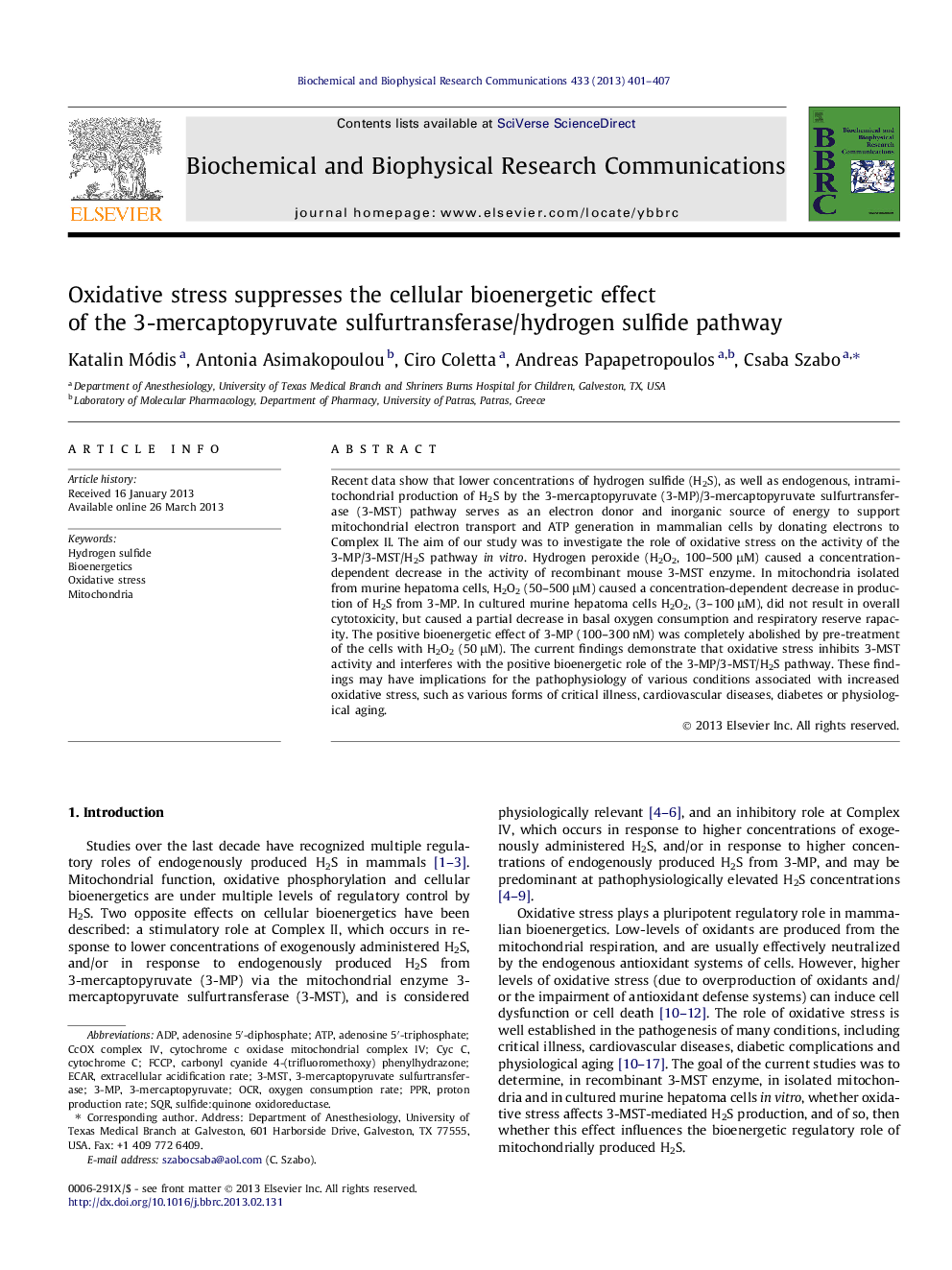| Article ID | Journal | Published Year | Pages | File Type |
|---|---|---|---|---|
| 10759567 | Biochemical and Biophysical Research Communications | 2013 | 7 Pages |
Abstract
Recent data show that lower concentrations of hydrogen sulfide (H2S), as well as endogenous, intramitochondrial production of H2S by the 3-mercaptopyruvate (3-MP)/3-mercaptopyruvate sulfurtransferase (3-MST) pathway serves as an electron donor and inorganic source of energy to support mitochondrial electron transport and ATP generation in mammalian cells by donating electrons to Complex II. The aim of our study was to investigate the role of oxidative stress on the activity of the 3-MP/3-MST/H2S pathway in vitro. Hydrogen peroxide (H2O2, 100-500 μM) caused a concentration-dependent decrease in the activity of recombinant mouse 3-MST enzyme. In mitochondria isolated from murine hepatoma cells, H2O2 (50-500 μM) caused a concentration-dependent decrease in production of H2S from 3-MP. In cultured murine hepatoma cells H2O2, (3-100 μM), did not result in overall cytotoxicity, but caused a partial decrease in basal oxygen consumption and respiratory reserve rapacity. The positive bioenergetic effect of 3-MP (100-300 nM) was completely abolished by pre-treatment of the cells with H2O2 (50 μM). The current findings demonstrate that oxidative stress inhibits 3-MST activity and interferes with the positive bioenergetic role of the 3-MP/3-MST/H2S pathway. These findings may have implications for the pathophysiology of various conditions associated with increased oxidative stress, such as various forms of critical illness, cardiovascular diseases, diabetes or physiological aging.
Keywords
SQROCRproton production rateADPFCCPPPRECAR3-Mercaptopyruvate3-MST3-MP3-mercaptopyruvate sulfurtransferaseadenosine 5′-triphosphateadenosine 5′-diphosphateATPOxidative stressBioenergeticsHydrogen sulfideSulfide:quinone oxidoreductasecytochrome cMitochondriaOxygen consumption rateextracellular acidification rateCarbonyl cyanide 4-(trifluoromethoxy) phenylhydrazone
Related Topics
Life Sciences
Biochemistry, Genetics and Molecular Biology
Biochemistry
Authors
Katalin Módis, Antonia Asimakopoulou, Ciro Coletta, Andreas Papapetropoulos, Csaba Szabo,
